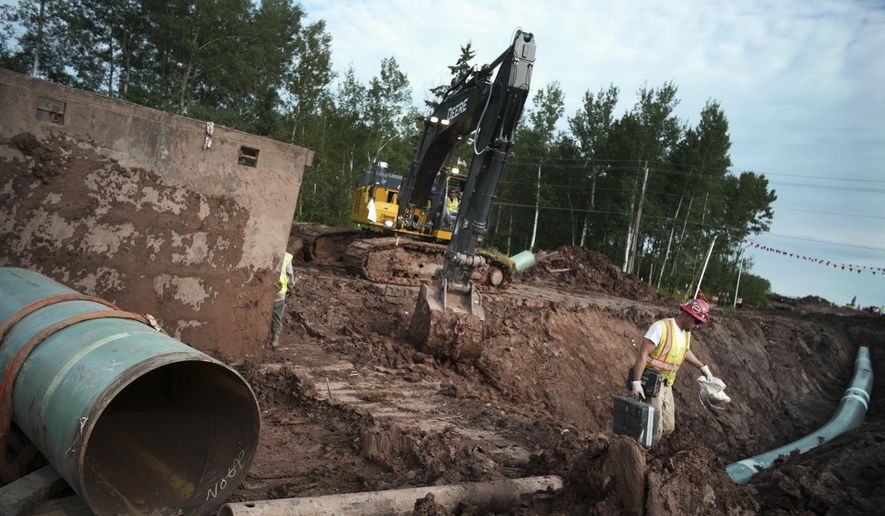The Biden administration announced Thursday that it will begin weighing how much new oil and natural gas pipelines contribute to climate change when deciding whether to approve the projects.
The Federal Energy Regulatory Commission announced the decision during a meeting Thursday, with a top Biden appointee arguing the “public interest” could not be properly addressed without taking into account climate change.
“A proposed pipeline’s contribution to climate change is one of its most consequential environmental impacts,” said Richard Glick, who was appointed as the commission’s chairman by President Biden this year.
One of the nation’s leading energy bureaucracies, FERC is responsible for regulating the transmission of oil and natural gas through pipelines. As part of that role, the commission has power over whether natural gas pipelines spanning multiple states should be built.
FERC’s decision to begin weighing pipelines’ contributions to climate change is a departure from the last four years. Under former President Trump, energy regulators were encouraged to slash red tape in an effort to boost domestic energy production.
The Trump administration, in particular, exempted major pipeline projects from federal review provided they received some form of federal funding. Those efforts were part of a broader energy agenda pushed by Mr. Trump that saw the U.S. exit the Paris Climate Accord and roll back more than 100 environmental regulations.
Although Mr. Trump’s moves were lambasted by Democrats, the result was that in 2019 the U.S. became energy independent for the first time in decades. That year, the country also saw the largest decline in energy-related carbon emissions compared to other countries across the globe.
Mr. Biden and his appointees, including Mr. Glick, are pursuing a different strategy. On his first day in the White House, Mr. Biden reentered the Paris Climate Agreement, committing the U.S. to reach net-zero carbon emissions by 2050.
The president also revoked permits for the Keystone XL pipeline, which would transport more than 800,000 barrels of oil daily from Canada to the Texas Gulf Coast.
Mr. Biden’s cancellation of the pipeline was heralded by environmentalists. Republicans, on the other hand, have slammed the move for killing American jobs.
Others such as Sen. Joe Manchin III have taken a different route when criticizing the administration’s opposition to pipelines.
Mr. Manchin, a conservative West Virginia Democrat and the chairman of the Senate Energy and Natural Resources Committee, has urged his party to “come to grips” with the fact that pipelines are the safest way to transport oil and natural gas.
“I’ve seen the devastating effects [of transporting oil and gas] by rail and by road, and a pipeline is the best way to move this product,” he said this month at a major energy conference.
• Haris Alic can be reached at halic@washingtontimes.com.




Please read our comment policy before commenting.